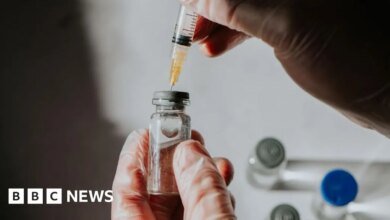What Happens To Your Body When You Eat Enough Potassium

Potassium is an electrolyte (electrically charged mineral) that works with sodium, another electrolyte, to help your body maintain proper fluid balance and blood volume, among other functions.
Most people get enough or even too much sodium from their diet. But if you don’t get enough potassium, it can disrupt the balance of these electrolytes.Keeping them in balance with enough potassium is important for preventing some of the negative effects of sodium.Potassium also has other benefits.
Because potassium plays so many different roles in the body, having low levels may increase your risks of certain illnesses. Taking in enough potassium may help prevent certain conditions.
The link between hypertension (high blood pressure) and low intake of potassium is well-established. Getting enough potassium may help prevent conditions associated with high blood pressure, too, such as:
Researchers have also explored the potential role of potassium in other conditions, though the evidence isn’t as clear. For example, a higher intake of potassium may decrease your risk of:
In the United States, most people get less potassium in their diet than recommended, and sodium than recommended.
For many people, it makes sense both to decrease sodium intake and to increase potassium intake on a regular basis. High sodium and low potassium increase the risk of high blood pressure and problems related to it, such as heart attack and stroke.The ratio of the two minerals may be important than the level of either aloneso you’ll get the best effect if you target both mineral levels.
If you’ve recently lost fluids—maybe through vomiting, diarrhea, or lots of sweating from athletic exertion—you may need to take inpotassiumandsodiumto replenish what you lost.
Replacing both sodium and potassium may be particularly important in children, older adults, adults with weakened immune systems, or anyone with severe signs of dehydration or severe fluid loss.
A healthcare provider might recommend you take sodium and potassium together through supplements or an electrolyte drink. Doing so can treat dehydration while preventing problems from electrolyte imbalances.
If you’re looking to increase your potassium intake, try eating potassium-rich foods. These include:
- Potatoes
- Bananas
- Leafy greens
- Avocado
- Carrot juice
- Orange juice
- Dried apricots, raisins, and prunes
- Lentils and beans
- Milk
- Spinach
Potassium supplementsare also an option. However, most manufacturers only sell supplements that contain 99 milligrams of potassium or less, which is much lower than the recommended daily amounts.
At such low doses, it may be effective for most people totry to get extra potassium through their dietinstead of potassium supplements. For example, a banana contains than four times the amount of potassium found in most over-the-counter supplements.
It is possible to have too much potassium. Taking in too much potassium could be a factor in hyperkalemia (high levels of potassium in the blood). Hyperkalemia can cause shortness of breath and sometimes life-threatening heart rhythm problems.
Most people can safely take potassium supplements, but some people, includingpeople with advanced kidney diseaseneed to be cautious with potassium intake. That includes intake from not only supplements, but also high-potassium foods.
Many people consume less potassium than recommendedhowever. Adults and children 4 years or older should get about 4,700 milligrams of potassium a day. An adequate daily intake of potassium is 3,400 milligrams for men and 2,600 milligrams for women.
Disclaimer: This news article has been republished exactly as it appeared on its original source, without any modification.
We do not take any responsibility for its content, which remains solely the responsibility of the original publisher.
Author:Ruth Jessen Hickman, MD
Published on:2025-11-18 01:45:00
Source: www.health.com
Disclaimer: This news article has been republished exactly as it appeared on its original source, without any modification.
We do not take any responsibility for its content, which remains solely the responsibility of the original publisher.
Author: uaetodaynews
Published on: 2025-11-18 07:48:00
Source: uaetodaynews.com




